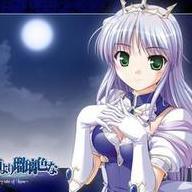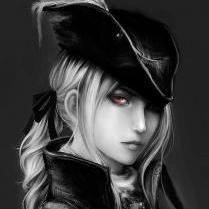Leaderboard
Popular Content
Showing content with the highest reputation on 02/27/21 in all areas
-
I want to give Rei-Jin-G-Lu-P a try but I'm not sure it's good VN or not. How good it's Rei-Jin-G-Lu-P?1 point
-
While its major twists might leave people disappointed, the vn itself was a blast and a half. I was binging it, it was just so entertaining and i had to know what happens next.1 point
-
Hands down one of my top 5 VN experiences last year, so I highly recommend it! You can rest easy. There are a lot of major plot points to unveil, and what you mentioned in your spoiler isn't entirely accurate anyway.1 point
-

Rei-Jin-G-Lu-P
Novel21 reacted to AngstyNarrator for a topic
Very good. I finished the first route and I wonder what will happen next, though I already prematurely seen some (admittedly contextless) spoilers such as the fact that I hope that's not all of the major spoilers.1 point -

What is a game's quality? Is it objective?
Gibberish reacted to Plk_Lesiak for a topic
1. People mix up quality and their personal enjoyment all the time which makes the discussion about it very loaded. Quality is somewhat quantifiable, while enjoyment is purely personal. It's utter snobbishness to claim you only enjoy good-quality things, or to not be able to appreciate the quality of something you personally despise. At the same time, it's easy to understand why many people do not have that kind of distance towards media they consume – they affect our emotions and can become so important that we see every critique of our favourites as personal attacks against us. 2. Quality isn't objective, as Palas nicely explained, but I also hate the perspective that it's 100% reliant on context. We get to something like claiming that Twilight is a quality series because bland self-insert protagonists and shitty, sappy writing are not considered negative traits for a teenage romance novel (and I've seen a writer that I semi-respect spewing that). I think that the "does it do its job?" question is important, but shouldn't be the end of the discussion. Otherwise, once more, we lose all difference between something being of good quality and just being popular. 3. And as the same time, the pedantic approach of overanalysing pieces of media by some (even well-developed) set of technical standards, and creating some kind of "mean score" assessment is absolute nonsense too. A piece of media is never just a sum of its parts, so to say something meaningful about it you need to include contextual knowledge and subjective impressions about its effectiveness in whatever it tried to achieve. So, to sum it all up... I'd argue that quality, if the word is meant to have any meaning at all, is a bit more objective than some people make it out to be – arts that develop over decades and centuries create their canons of good practices and techniques that are worth utilizing, and should be used as points of reference. But it's also not as important as some make it out to be – both because something doesn't have to be high-quality to provide entertainment and because high quality by itself doesn't create meaning. And that's good, because otherwise art and popculture would be awfully dull.1 point -
The best judge of quality is time. Fads come and go, which is why popularity is a poor judge. Think of all the anime that gets discussed every season. Some of which is very popular and then gets forgotten about within a year or 2. On the other hand, there are cases where something went unnoticed for a while, and eventually it gets dug up and finally appreciated. I realize its a frustrating answer, to say that the only way to really determine quality is to wait. But I think its the only consistent method that is relatively free of bias.1 point
-
“War was always here. Before man was, war waited for him. The ultimate trade awaiting its ultimate practitioner.” ~Judge Holden (Blood Meridian) “My love is destruction. Its flames ache to devour all that exist: Heaven and Hell, God and Satan; all things in Creation, from the first universe that was, to the last that will ever be.” ~Reinhard Heydrich (Dies Irae) The archetype of a sentient embodiment of war continues to persist, and has morphed considerably from its mythological origins. Having finished Cormac McCarthy's Blood Meridian, considered by some literary critics to be the great American novel. I am left transfixed by a particular figure, a haunting presence that defies death: the Judge, Judge Holden. The Judge is a complex figure, and there are many interpretations as to who he really is. One common interpretation is that he is the embodiment of war itself. This, along with his function in the novel, reminded me quite of bit of Reinhard Heydrich from Dies Irae. Reinhard proudly claims to be war itself, and so in this respect he is not subtle. What makes Reinhard standout as a villain, is how evil yet seductively charming he is. He wants destruction for its own sake, or really; for his amusement. To him war is fun, and an eternity spent warring couldn't be a more ideal form of the afterlife in his conception. He would be in complete agreement with the judge on this point: “Men are born for games. Nothing else. Every child knows that play is nobler than work. He knows too that the worth or merit of a game is not inherent in the game itself but rather in the value of that which is put at hazard. Games of chance require a wager to have meaning at all. Games of sport involve the skill and strength of the opponents and the humiliation of defeat and the pride of victory are in themselves sufficient stake because they inhere the worth of the principals and define them. But trial of chance or trial of worth all games aspire to the condition of war for here which is wagered swallows up game, player, all.” Easily some of the best parts of both Blood Meridian and Dies Irae are the speeches and dialogues given by Judge Holden and Reinhard respectively. At some point Reinhard in the midst of battle famously states, “I love everything, therefore I will destroy everything”. The judge says something essentially to that effect as well. Possessing a near expert level of knowledge on nearly every subject (something true of Reinhard as well), he is once asked by a fellow crew member why he always meticulously jots notes of artifacts they pass by. The Judge responds, “to expunge them from the memory of man”. What he's saying there is that he wants to record everything so that he can keep track of what he destroys, with his ultimate goal of destroying everything from the “memory of man”. This ties into another famous quote of his, “Whatever in creation exists without my knowledge exists without my consent.” In order to have dominion over everything (to become a “suzerain” in his own words), you must first know everything. For you cannot conquer what you don't know. There is however a key point of contrast between these two characters who share this same archetype. Judge Holden is visibly terrifying, with the image I included in this post being my favorite depiction of him. Reinhard on the other hand, is gorgeous. Compared to the Judge's bald head and completely hairless body, Reinhard is characterized with a mane of flowing blonde hair. The importance of this contrast in outward appearances is that the two characters signify different aspects of war. Reinhard best represents the seduction of war, and the glory as well as rewards it promises. In the prologue alone, he convinces countless Nazi soldiers faced with imminent defeat and slaughter against the Russian troops storming Berlin, to instead give up their own lives and souls to him. Encouraging them to participate in a group suicide that would put the largest of death-cults to shame. They went along with his command, because he promised the glory that Hitler failed to deliver on. It is also noted when that happened, “This could not have been the first time.” If Reinhard is the seducer of war, then the judge is its rapist. Indeed, there are several instances in the novel where it is heavily suggested that the judge was responsible for a brutal rape, but it is never concretely confirmed. But his fetish for violence is no secret. While the judge is capable of persuasive charm, his preference for violence is clear. Even when he does display his persuasive abilities, the threat of violence that his domineering stature imposes must surely add a feeling of extortion to any request he makes. To list the unfathomably gruesome cruelty of the judge would still not accurately communicate how truly horrifying he is. I think the best example is when he was left in charge of the gang and a group of hostages when the gang leader, Glanton, had to leave for other business. When Glanton finally returns, one of the hostages comes desperately running to him only able to say, “That man, that man.” What Judge Holden personifies, is the horror of war itself. I suppose the last point of comparison I would like to touch on, is how both Reinhard and judge Holden are based on real people. Reinhard Heydrich was a high ranking Nazi official. They tie this in an interesting way in Dies Irae, but obviously the overall depiction of Reinhard in Dies Irae is mostly fictional. Judge Holden on the other hand is much more mysterious. Both the real and fictional Judge Holden was the second in command of the Glanton Gang; mercenaries who in 1849 temporarily worked for the Mexican government to genocide Apache Indians. However, the Glanton gang (lead by John Glanton) also slaughtered peaceful tribes in order to collect more Indian scalps which they could exchange for a higher bounty. At the end of 1849 the state of Chihuahua outlawed the gang, and put bounties on their heads. Samuel Chamberlain, who at one time worked for the Glanton gang wrote about his experiences with them in his memoir: My Confession: The Recollections of a Rogue. Mentioned several times in the memoir, it's the only document that attests to the existence of Judge Holden. In it he is described as, “a man of gigantic size called "Judge" Holden of Texas. Who or what he was no one knew but a cooler blooded villain never went unhung; he stood six feet six in his moccasins, had a large fleshy frame, a dull tallow colored face destitute of hair and all expression. His desires was blood and women.” In the memoir he also notes, “Holden was by far the best educated man in northern Mexico; he conversed with all in their own language, spoke in several Indian lingos, at a fandango would take the Harp or Guitar from the hands of the musicians and charm all with his wonderful performance.” It is the fact that the only testimony of the Judge's existence is in several pages of an obscure, forgotten memoir that makes him more terrifying for me. Given how similar the description of the real Judge Holden, and the fictional one is, it makes it that much more difficult to draw the line between fiction and reality. What can be said though is that “war endures”. As long as there are masses of people desperate for glory, then Reinhard will be there to seduce them. And as long as there are blood soaked battlefields, the towing silhouette of the judge will be there to lead men to their doom.1 point
-

Unlimited Chat Works - Random Talk
Templarseeker reacted to Plk_Lesiak for a topic
And here's my greatest find from the ripped-nukige-CG folder of that shady disc. I want to ask for context, but I know the answer could never be fully satisfying. Also, for those really curious, here's an ISO. I don't think it contains any actual copyrighted material... Outside of the screenshots/CGs from 25-years-old porn games which definitely didn't find their way there in a legit way, but I don't think those are problematic to share in this context?1 point -

Unlimited Chat Works - Random Talk
Templarseeker reacted to Plk_Lesiak for a topic
I've made an archaeological discovery today.1 point




